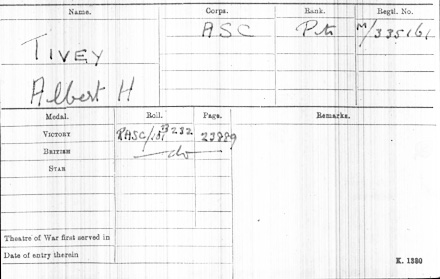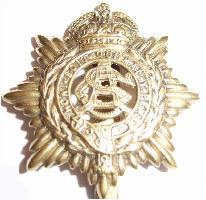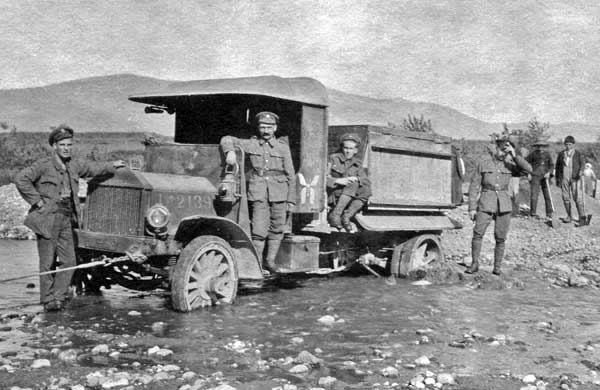Named Albert Harry Tivey and known as Harry, he
was born in the
Large township of Shepshed (formerly Sheepshead) in
Leicestershire in 1882. His parents were Charles Tivey, a
master tailor by trade and Ann Blood. Harry married in 1908 in
the Smallburgh District of Norfolk to his wife of 47 years,
Frances Mary Pestle. In 1911, Harry was a Milk Seller by trade
and had moved back to his hometown of Shepshed where he and wife
Frances had three children - Frances Hannah Tivey, Colin Pestle
Tivey and Sarah Tivey. Harry was a member of the Motor Transport
section of the Army Service Corps (The "Royal" was added to it's
title in 1918). The Army Service Corps are thought of by many as
the unsung heroes of the Great War, an army could not function
without food, shelter, ammunition and countless the other items
that were transported to those on the frontline by men just like
Harry.
Harry joined the ASC in December 1915 and served as a motor
vehicle driver transporting food,drink and later petrol for 22
months in France.
|
|
Name:
|
TIVEY, Albert Harry
|
|
Regiment, Corps
etc.:
|
Army Service Corps, Motor
Transport Section
|
|
Surname:
|
Tivey
|
|
Forename(s):
|
Albert Harry
|
|
Initials:
|
A H
|
|
Birthplace:
|
Shepshed, Leicestershire
|
|
Enlisted:
|
Loughborough, Leicestershire 9th
December 1915
|
|
Residence:
|
(On Discharge 1919) Field Street,
Shepshed, Leicestershire
|
|
Rank:
|
PRIVATE
|
|
Number:
|
197446 and 335161
|
|
Theatre of war:
|
France & Flanders
|
|
Supplementary
Notes:
|
Declared medically fit for
service after his horse threw him to the ground in 1916,
despite the fact that he suffered with terrible
headaches after the fall. He contracted influenza and
laryngitis in 1919 whilst on duty and was demobbed after
recovering his illness at a military convalescent
home in Ashton in Makerfield, Lancashire.
|
|
 |
His war pension record can be seen by clicking on the image
below which should open in another window.

|
 This
is the badge which Harry and his fellow Army Service Corps
members would have worn on his cap. At the height of the war
there were 315,334 men serving in the ASC and in addition there
were thousands of Egyptian, Indian, Chinese and other native
labourers, carriers and storesmen, under orders of the ASC. The
Photo below features a typical WWI ASC Motor Vehicle. This
is the badge which Harry and his fellow Army Service Corps
members would have worn on his cap. At the height of the war
there were 315,334 men serving in the ASC and in addition there
were thousands of Egyptian, Indian, Chinese and other native
labourers, carriers and storesmen, under orders of the ASC. The
Photo below features a typical WWI ASC Motor Vehicle. |
 |